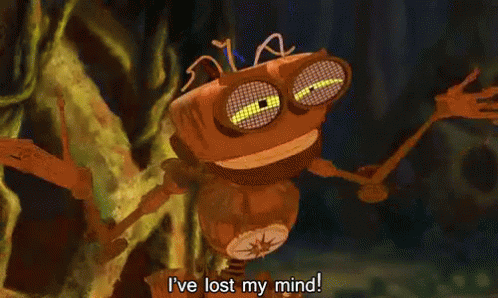
In the Christopher Nolan film Memento, the protagonist Leonard Shelby is a man with amnesia. He can’t form new memories, which is information that is ostensibly of interest to us for reasons which largely pertain to the novelty of the thriller mechanics—a perfunctory explanation of his condition is usually included in the first couple of words of the film’s various synopses. Without beating around the bush, Leonard’s condition is a mortifying nightmare. At face value, his inability to form new memories renders him incapable of forming relationships with anyone. The essential character of his existence is a sustained, frenzied mental calculation by which he must infer, from subtext and small details in his surroundings, why he is where he is and how he ought to behave. He is frequently bullied, belittled and misled by his neurotypical associates. The subjectivity of the filmic language by which his situation is communicated to us frequently suggests that he is aware of this fact, because we are. I wonder how he possibly could be.
The line above, that a mind is a terrible thing to lose, is from another amnesiac film character: B.E.N. (or Bio-Electronic Navigator) from the Disney film Treasure Planet. B.E.N for most people seems to be the worst part of the film: an annoying comic relief character treated with a vitriol that would have been unique if not for the singular hatred reserved for Jar Jar Binks. In a terrible but very popular YouTube video essay on the film, during the lengthy section devoted to complaining about B.E.N, the author, Breadsword, asserts that there is nothing inherently wrong with the comic relief foil character, but that the problem with B.E.N. is that “we don’t care about him”. I have to wonder: why is this? B.E.N. is indeed very annoying, but he’s also one of the most interesting characters in the film. He is a being who very clearly has a personality and consciousness, and so the revelation that he has been trapped alone for one hundred years should be distressing to us. His ineptitude and tonally inappropriate slapstick are treated as direct results of his isolation and mental degeneration. If we do not care about B.E.N., it is because we are reluctant to step outside of the frame offered to us by the diegesis of the story. He is coded as an anomalous goofy foil because his existence is not self justifying: within the diegesis he is a tool designed to serve a purpose (helping the real people navigate) and outside the diegesis he is a tool designed to a serve a purpose (make kids laugh). Stepping outside of this frame for even a moment punctures the callous indifference of our suspension of disbelief.
When B.E.N. delivers the quoted line, with the exaggerated campy gesture of a hack actor, we are supposed to find it funny, apparently, but he’s right. A mind is a terrible thing to lose. One of my best friends is the grandchild of Clive Wearing, a conductor and musician who in the mid 80s suffered severe brain damage and developed one of the most severe cases of amnesia in the world. In this documentary, journalists interview Clive’s daughter Alison, my friend’s mother. This woman, who I have seen laugh and shout and barrel through life with a forceful vitality, is here reduced constantly to tears. Since Clive’s memory span is so short, he is filmed repeating the same phrases over and over—independently coming up with the same analogy for his experience. “It’s exactly like being dead.” Alison is asked by the voice behind the camera when she last saw him, and she admits that she would prefer not to say. The experience is too painful. In a now deleted upload of the same documentary, which had garnered orders of magnitude more views as an accident of the YouTube algorithm, multiple viewers took the time to write out comments about how selfish she is, which my friend had of course read and still remembers years later after Alison's passing as the result of a motorbike accident.
In fiction, death is often treated as a storytelling mechanic rather than as a phenomenon in and of itself. In Treasure Planet, the space pirate Billy Bones dies on screen. We do not mourn for him, because he is not a person. He is a delivery mechanism for a map that will lead the people who matter to adventure. His death serves to close him off as a source of information—a door, a path through the plane of possibility, has been closed to us, and so we must go another way. B.E.N.’s amnesia is the same: he knows enough to guide Jim Hawkins toward his goal, but his compromised memory leaves open the possibility of calamity, which is exciting. Jim Hawkins, and Breadsword the YouTuber, care precisely about two pieces of information that B.E.N. has lost: the location of the treasure and the tantalising promise of another important piece of information. Inevitably, this information pertains also to the treasure: B.E.N. has forgotten about the booby traps. Never does it cross our minds that the piece of information that B.E.N. is trying so hard to remember could be something more personal, important, obscure, or meaningless. The precise location in the universe of an old book, the shadow cast on the deck of a starship by a cutlass, a word from a friend, the experience of being seen—not looked at with mistrust or pity or derision, but seen by another person.

Leonard Shelby, then, was the victim of a violent attack that left him with severe brain damage. His wife was raped and killed. In a generous reading of the text, we might infer that Christopher Nolan is very interested in exploring the aesthetic of temporal disorientation, and poking at the subjectivity of film by presenting us with a subject who is more object than subject. Leonard is usually acted upon, and when he is able to act as an agent it is through the defacing of his own body, the destruction of self, in order to act. Leonard, consciously and within the diegesis, chooses to make the transformation from individual to narrative mechanic. His existence is not self justified—he only exists in order to take revenge. In an uncharitable reading of the text, Christopher Nolan is very interested in telling a compelling detective story about a man who can’t remember anything, and through an obscene parturition creates a man to torture—a man whose mind constantly refreshes the pain of his wife’s murder and rape. In the accident that crippled Leonard, his wife was murdered and raped, and the text goes to great lengths to make sure you understand that those things happened, but to almost no lengths whatsoever to express the gravity of that fact.
Leonard’s wife’s death functions as a narrative mechanic: it is the sufficient emotional driver of his obsessive hunt for revenge. What of her rape? It is narratively unnecessary—the murder completely suffices. The rape is used as a gratuitous flourish. When Leonard’s memory leaves him, as it always does, he is left back at the moment of that tragedy. The subjective experience of this invented man is that frenzied mental calculation, his attempt to understand the blurry and unaccountable cruelty of a present disconnected from the continuity of the past, alongside the open wound of that revolting trauma. In ancient Greece, the liver was often thought to be the seat of human emotions, which makes the torture of Prometheus, in which his liver is devoured by eagles only to regenerate and repeat at every successive dawn, a prodigiously cruel image. Leonard’s orbicular psychological torture, every bit as awful, is used by Nolan to tell a Hollywood murder mystery story, which is an inscrutably callous ethical move.
In the most moving scene of the film, Leonard hires an escort to act out a roleplay of a happy memory. Leonard is in bed drifting close to the oblivion of sleep. His wife’s things are arranged around him, the escort shuts a door. Leonard forgets, for a moment, that his wife is dead, and believes sincerely that she is behind that door. He is happy, a thin seam appears in the eternal recurrence of his nightmare. In a forum thread on moviechat.org titled “what was the point of the escort scene”, confused viewers question the inclusion of this scene. They do not consider its texture, its semantic shape, but only its narrative significance—the part it plays in the diegetic innards of a tightly engineered detective story. One user named ExTechOp writes “the hooker scene doesn't advance the narrative enough to justify its existence. It does feel like "padding."”.
Leonard Shelby’s wife is never given a name.